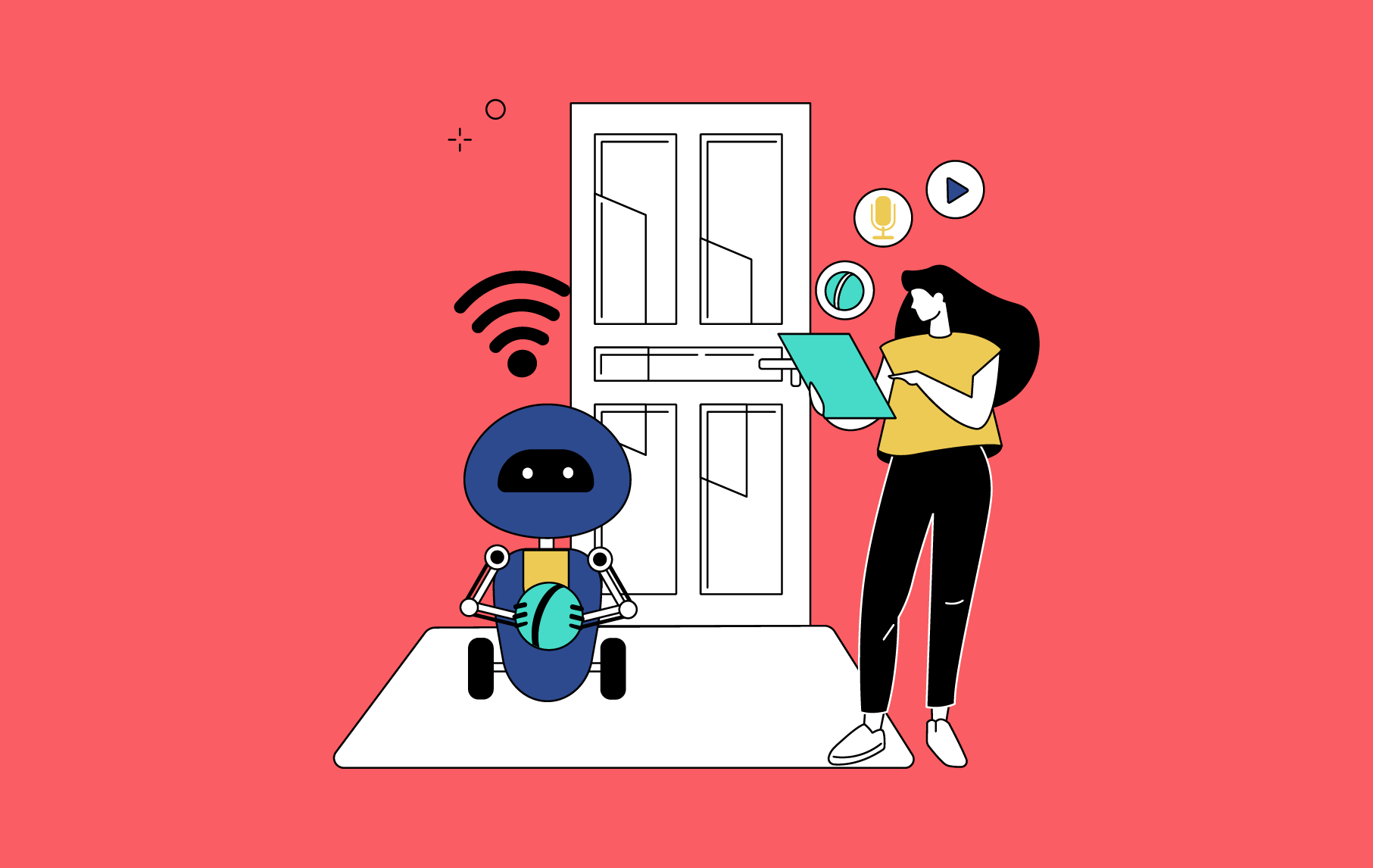This blog will explore the possible impact of IoT on the retail market. Learn about the latest trends and practical use cases of this advanced and highly useful technology.

The ongoing development of information technologies and the growing number of IoT devices significantly impact retail. To remain competitive and keep up with the demands of modern users, retailers are extensively implementing IoT in the retail market.
In this article, you will learn about the primary IoT retail use cases and the benefits of implementing IoT in the retail industry. Additionally, we will also explore some of the recent trends of IoT in the retail market.
The Internet of Things (IoT) is a network of physical objects—"things"—embedded with sensors, software, and other technologies. It is meant for the purpose of simplifying communication and exchanging data with other devices and systems via the Internet. These gadgets can range from common domestic items to complex industrial machines.
IoT has emerged as one of the most important technologies of the 21st century in recent years. We can now connect multiple objects to the internet via embedded devices.
These devices include kitchen appliances, vehicles, thermostats, and baby monitors. IoT ensures seamless communication between people, processes, and things is conceivable.
IoT use cases in the retail industry can be traced through multiple aspects. Modern retailers use IoT devices and sensors to optimize management processes, improve interaction with customers, and increase income.
Let's take a closer look at some of the most common iOT retail use cases in 2023.
Using IoT for retail by integrating devices such as GPS and RFID tags into the supply chain enables real-time monitoring of the goods' movement from producers to consumers. Retailers can obtain information about the location of goods, detect delays, and optimize the supply chain.
One of the most common IoT applications in retail is using temperature and humidity sensors to enable control of the conditions in which the goods are transported, improve the quality of delivery, and reduce waste. This is especially important for perishable food and medicine.
Internet of Things technology allows retailers to implement automated payment for purchases in stores without cashiers. IoT devices can read barcodes or RFID tags of products and collect payment through POS terminals. Modern systems can also read product tags when the customer leaves the store and charges using special mobile applications.
Automated checkout speeds up the shopping process, solves the problem of long queues and allows retailers to reduce employee salary costs.
The implementation of the Internet of Things in the retail industry helps to identify regular customers and encourage them with special offers and bonuses that contribute to the creation of a more personalized and enhanced customer experience.
Retailers use IoT sensors to monitor the health of equipment, such as refrigerators, HVAC systems, cash registers, and security systems.
This allows timely detection of deviations in their operation from normal indicators, to carry out technical maintenance, and, if necessary, repairs to avoid their sudden breakdown.
When any critical device goes down, IoT devices send instant notifications.
The implementation of IoT in the retail industry changes traditional business models and optimizes management processes. Let's take a look at some of the key benefits of using the Internet of Things in the retail industry.
Retail and IoT technology work extremely well together. IoT allows retailers to effectively manage inventory, minimize waste, automate routine tasks, and reduce the number of workers, resulting in significant cost savings.
Improvement of operational efficiency
Some IoT retail examples have also proved to be effective in improving the overall efficiency of businesses. IoT technologies enhance various retail operations by simplifying workflows, reducing manual intervention, and minimizing errors.
Automated inventory management, intelligent logistics, and equipment maintenance increase the overall efficiency of operational processes.
By analyzing data in real-time, IoT devices allow retailers to create more personalized and attractive offers for customers. As per retail IoT use cases, IoT sensors help navigate the store, and interactive displays provide detailed information about products. IoT apps are extremely beneficial in improving the efficiency of operations.
IoT technologies improve security measures in retail premises. Smart surveillance cameras and RFID tags are used to monitor and prevent theft. When any suspicious activity is detected, the IoT system sends instant notifications.
This allows retailers to create a safe shopping environment and prevent losses.
One of the most common IoT applications in retail is using data for informed decision-making. Data generated by IoT devices provides retailers with valuable insights into customer behavior and preferences.
Analyzing this data allows retailers to develop marketing strategies and adapt to changing market trends, resulting in increased income.
IoT applications in retail have significantly impacted the market, optimizing work processes, improving the customer experience, and increasing profits.
The total size of IoT in the retail market was estimated to be USD 42.38 billion in 2022. According to forecasts, by 2030, it will grow by an average of 28.4% per year.
The growth of top IoT development companies and the number of IoT solutions in the retail market is influenced by a number of factors, such as:
One of the ways to transfer data between devices utilizing these microcontrollers is by using the MQTT protocol. The ESP32 MQTT application enables simple, reliable, and seamless messaging in an IoT environment.
Let's consider the most popular trends in the Internet of Things in the retail industry.
Retailers can use VR and AR technologies to create virtual fitting rooms that allow customers to try on a large number of products in a matter of minutes. Virtual storefronts make it possible to view products and their detailed characteristics online. VR and AR allow customers to test different types of products and see how goods will look in their environment.
IoT is widely integrated with AI and ML, and its use will increase in the future. This allows retailers to analyze large volumes of data and gain a better understanding of customer behavior and interests to optimize pricing, purchasing, and marketing strategies.
The deployment of 5G networks will significantly increase the speed and reliability of data transmission between IoT devices. This will contribute to a more reliable integration of IoT in the retail sector, the use of high-quality video surveillance systems, and VR and AR programs.
Edge computing makes it possible to process data closer to the source of its generation, for instance, on IoT devices in shops. This allows retailers to analyze the data and make decisions more quickly.
IoT technology is widely used in retail and will continue to grow over the coming years. Retailers use IoT to solve various tasks, such as inventory and supply chain management, predictive maintenance, automatic checkout, and personalization of customer services. This enables retailers to make work processes more efficient, save costs, and improve user loyalty.
Integrating IoT technologies into retail is a profitable investment that makes it possible to remain flexible and competitive in a changing and dynamic market.

Aparna is a growth specialist with handsful knowledge in business development. She values marketing as key a driver for sales, keeping up with the latest in the Mobile App industry. Her getting things done attitude makes her a magnet for the trickiest of tasks. In free times, which are few and far between, you can catch up with her at a game of Fussball.


Cut to the chase content that’s credible, insightful & actionable.
Get the latest mashup of the App Industry Exclusively Inboxed